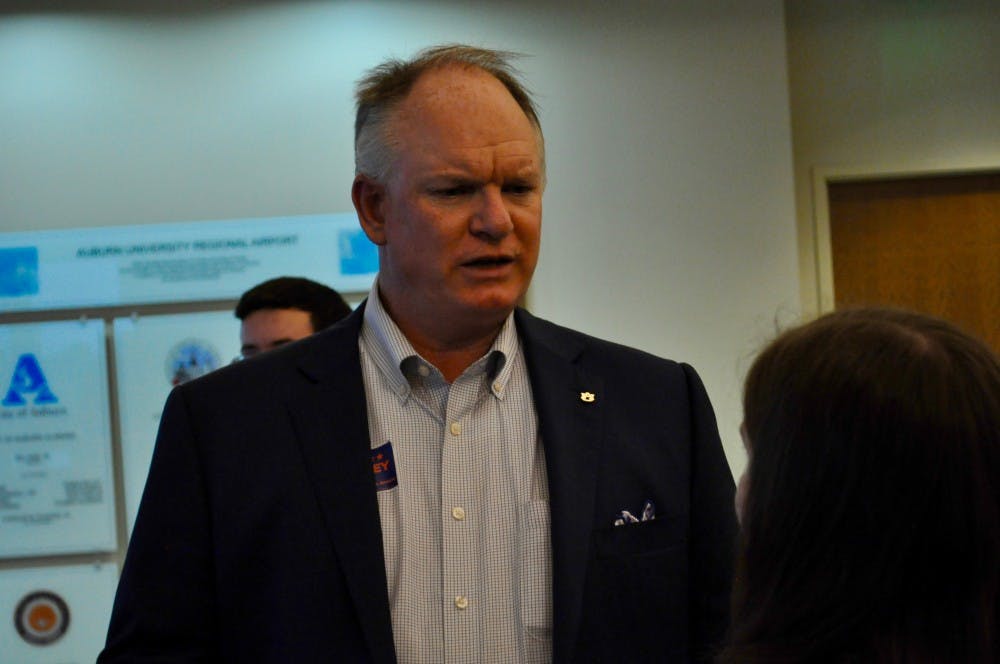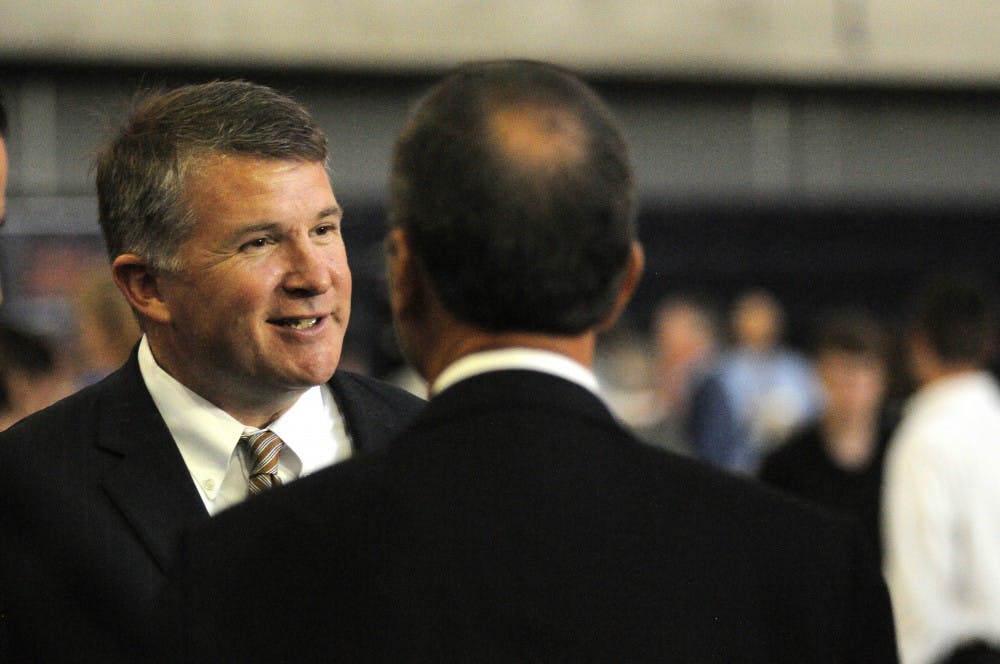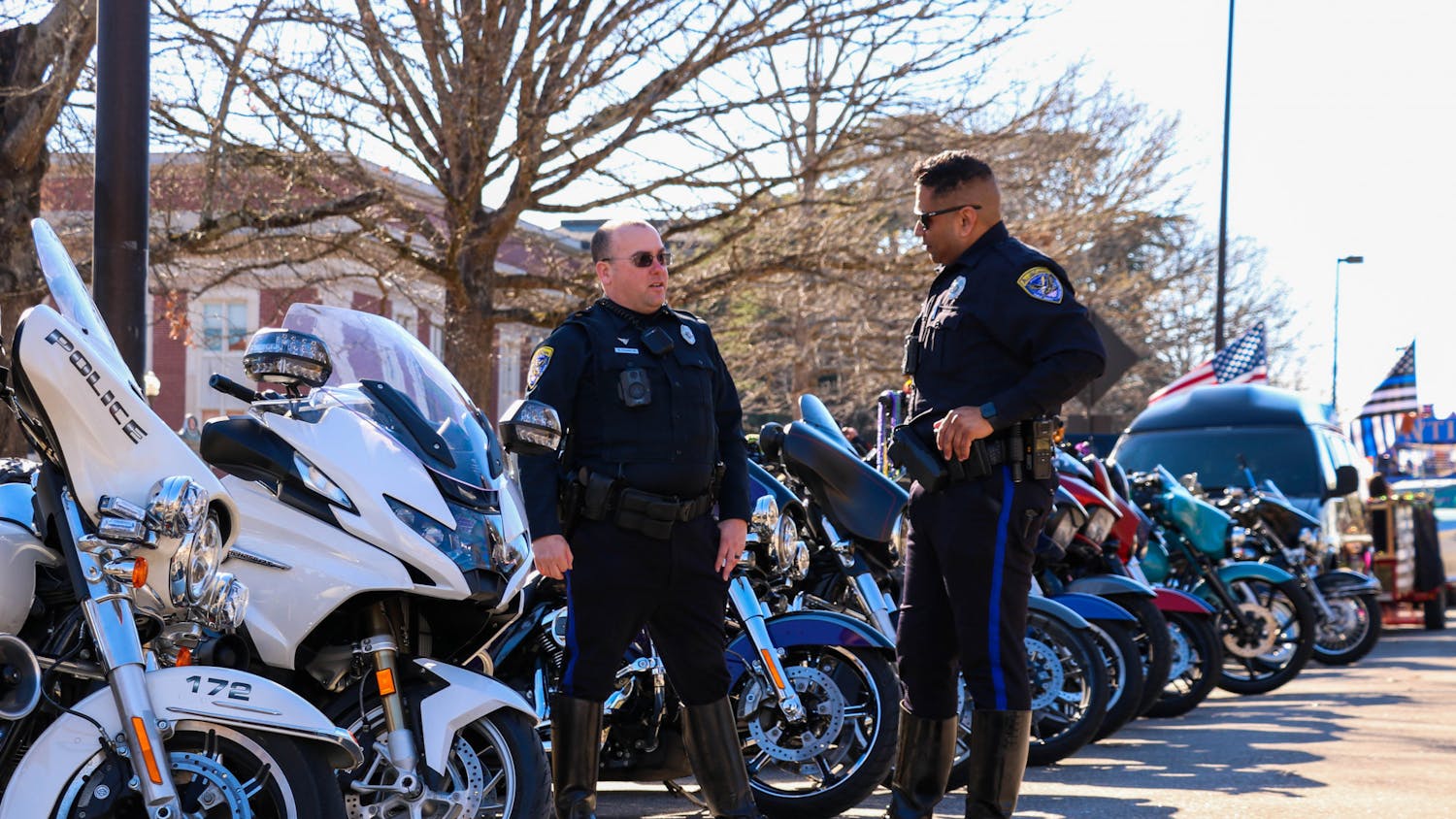In the upcoming legislative session, an emboldened Republican majority wants to tackle a number of chronic issues facing the state — from the underfunding of road, highway and bridge infrastructure to state prisons that are aging and overcrowded.
The Legislature recently held its organizational session, and lawmakers will return to Montgomery in March to get to work. On the agenda: a gas tax and a massive plan to build or lease new prisons.
Auburn-area lawmakers Rep. Joe Lovvorn and Sen. Tom Whatley, both Republicans, told The Plainsman that they are generally supportive of the two main agenda items.
“Generally, I’m going to say I’m supportive, but the devil is often in the details,” Whatley said.

Education funding
Whatley said funding for Auburn University is his priority.
“There needs to be a healthy balance of tuition, state funding and federal funding,” Whatley said. “What I would like to do is to continue to work with the University to make sure that we are addressing those needs, where neither one of those gets out of whack — where more is put on the students than on the state.”
Lovvorn, who serves on the House committee responsible for the state’s education budget, agreed on that point.
“We definitely want to make sure that Auburn University and its land-grant mission receive its fair share not only for the students at Auburn University but for all of the extension agencies that cover every county in the state,” Lovvorn said.
While Auburn has received more money from the state in recent years, that funding has yet to reach its pre-Great Recession peaks. In its current budget, Auburn received about 20 percent — or $263 million — of its revenue from in state funding. Tuition and fees make up about 45 percent of revenue.
In fiscal year 2008, $337 million in revenue came from state appropriations. That year, state funding made up more of the budget than tuition — which measured in at $251 million.
Whatley said the Legislature needs to make sure that universities are educating Alabamians at the lowest cost possible.
While the state’s general fund, which covers non-education agencies, has struggled in recent years, the education trust fund, which is sourced from other types of taxes including sales taxes, is growing. Lovvorn said he wants to ensure the money is put to good use.
“With this extra budget money we have rolling in this year, we’re going to have areas where we can make an impact,” Lovvorn said, adding that he thought the money could be put to use to expand on the state’s pre-K program and invest in math and science programs.
For Whatley, he wants to make sure higher education institutions are giving Alabama taxpayers a return on their investment. That includes more of a focus on research and development.
“If we are to continue pumping money into that, then we will continue to bring companies like GE and SOi2 and Viper,” Whatley said. “There’s more in the education budget than before, and I’m looking to make sure that we have our share come into Auburn, especially with any type of any infrastructure bill that the governor may come with.”
The gas tax
That infrastructure bill could contain research and development provisions. If that’s the case, Whatley said he wants Auburn to be in the mix.
This isn’t the first time that the state Legislature has tried to pass a gas tax. Lawmakers, including former Sen. Gerald Dial, R-Lineville, have pushed for years for a gas tax increase. The funding mechanism for road improvements hasn’t been adjusted since 1992 when only a nickel was added.
Now, nearly 30 years later, Alabama’s gasoline tax is the lowest in the Southeast, and Alabama is nearly last in gas tax revenue.
Both measures have failed not because of the Legislature’s small Democratic minority, but because of divisions within the GOP supermajority. This year, the leadership is unified in their call for a gas tax, and Gov. Kay Ivey used her inaugural address last week to call for infrastructure funding and prison reform. But that doesn’t mean the measure will pass.
“I would just have to see a proposal,” Lovvorn said. “I’m certainly not right out of the gate going to want any extra tax on the people of Alabama unless it’s something that we can’t avoid or something that we definitely need to move us forward.”
Proponents of the gas tax have argued it’s needed to pay for highway maintenance and to update aging bridges that are structurally deficient.
“I definitely will be up for conversation because I know the need is there,” Lovvorn said. “I know that we’ve got to make investments because the cost of doing nothing is not zero. The cost of making these repairs and improvements goes up every day.”
Whatley said he will likely support an infrastructure bill again this year.
“I’ve always supported one, but I will have to see it before I give you a yes or no,” Whatley said. “The general idea is yes, I want to support something that deals with extra funding for infrastructure, but I only want it to go to actual paving and make sure we’re covering all the areas that need to be covered.”
Whatley said he would like to see the tax cover not just gasoline because use of that particular fuel is declining as natural gas, autonomous vehicles and electric vehicles are growing in popularity.
“We also need to include in there natural gas, because Wall Street has predicted more and more transfer trucks that will be fueling with natural gas,” Whatley said. “We need to make sure that that’s addressed.”
He said electric vehicles could be taxed with a one-time, upfront fee or a fee per charge.
As chair of the Joint Legislative Committee for Self-Driving Vehicles, Whatley also wants the bill to look ahead and prepare for new issues that will arise with the growth of autonomous vehicles.
“When we drive, we move back and forth in the lane,” Whatley said. “We use the whole lane — natural patterns. The autonomous vehicle drives in a straight line as the GPS moves it. With that said, that creates different wear and tear on the road. We need to have a different plan in place to address and fund that type of repair on the road.”
Legislative oversight is another requirement for him, Whatley said.
And it’s about more than business efficiency, Lovvorn said.
“It’s not just about the freight moving and keeping the economy going,” Lovvorn said. “It’s the safety of the people and families who travel the roads and highways.”
Prison construction
Both issues — a gas tax and prison construction — have been divisive in the past, and are sure to be divisive this year.
Whatley said he would support a prison construction bill if it contained provisions that abide with the state’s bid laws. Bentley’s plan included a design-build provision that some lawmakers viewed as conflicting with the state’s bid law.
Lovvorn said he would need to see a broader prison reform package.
“It’s not a single-issue problem,” Lovvorn said. “It’s sentencing. It’s facilities. It’s mental health. It’s crime prevention. It’s investing into the growth of people and keeping them from returning to prison. I think we’re going to have to hit it, but it’s going to be from several different directions to make an impact in our prison system.”
Do you like this story? The Plainsman doesn't accept money from tuition or student fees, and we don't charge a subscription fee. But you can donate to support The Plainsman.

Chip Brownlee, senior in journalism and political science, is the editor-in-chief of The Auburn Plainsman.





